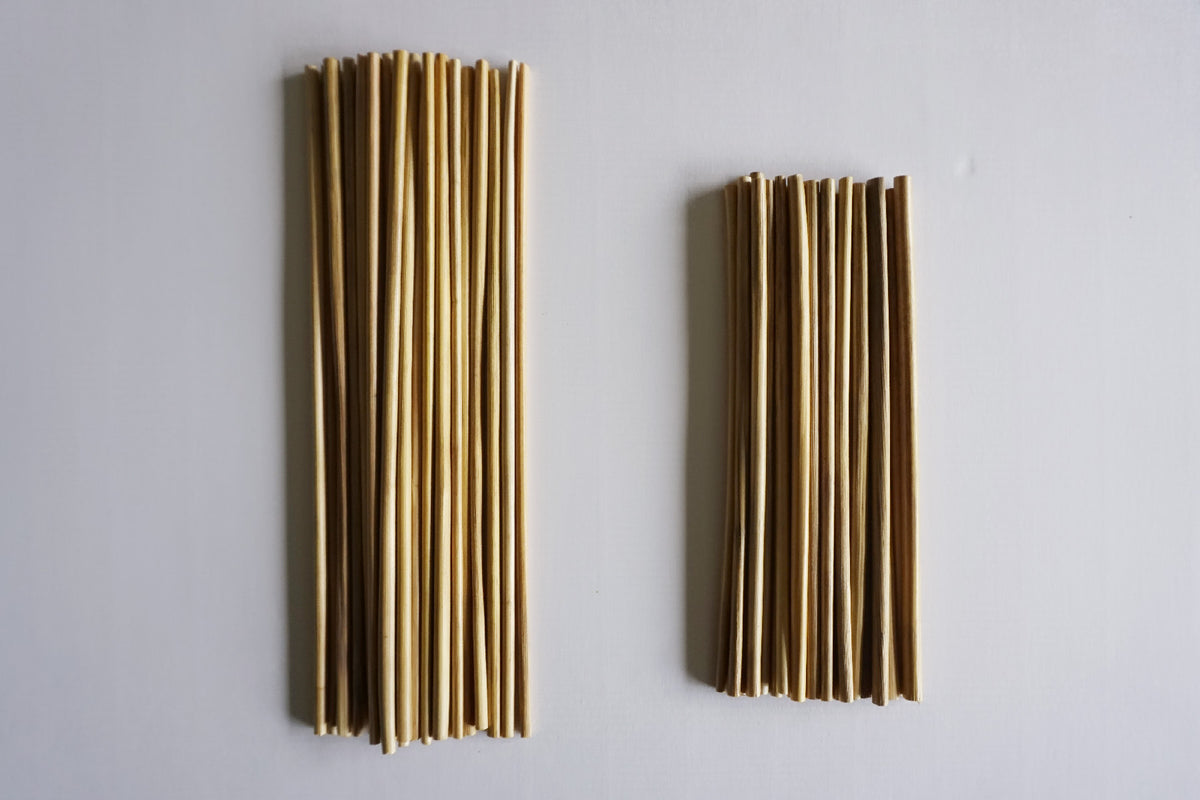
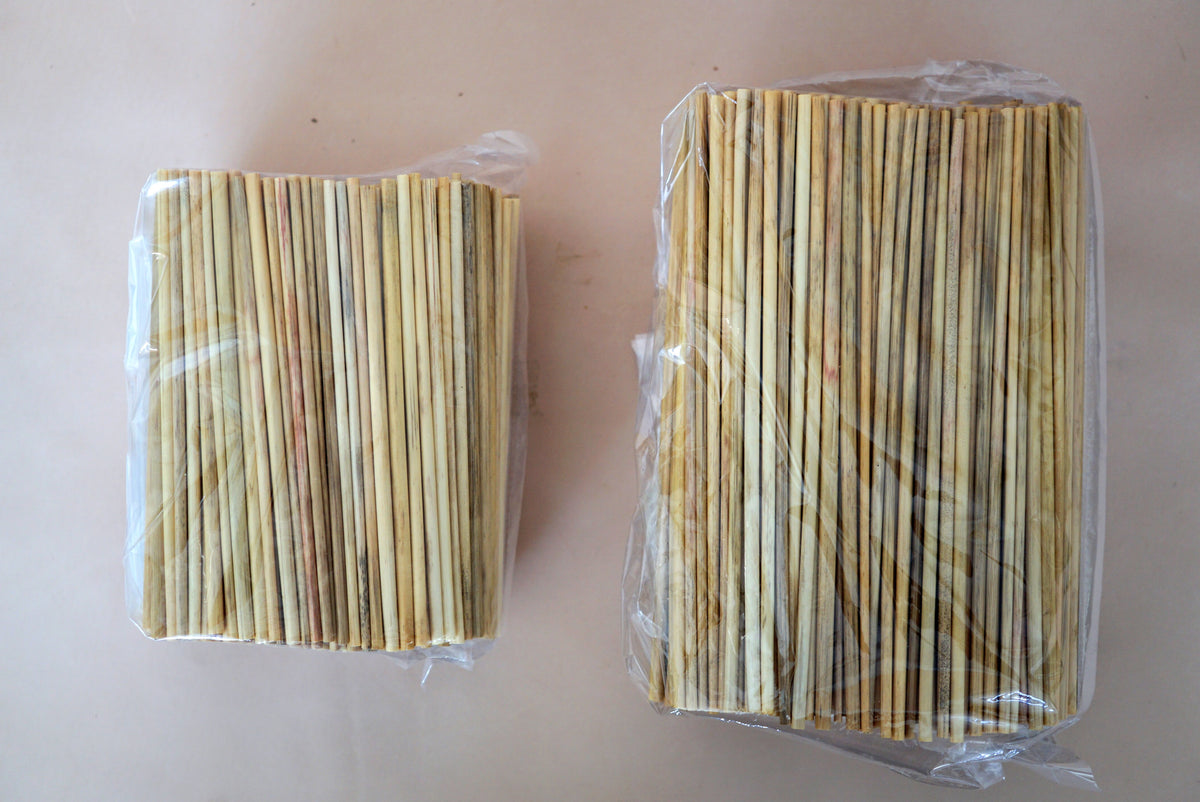
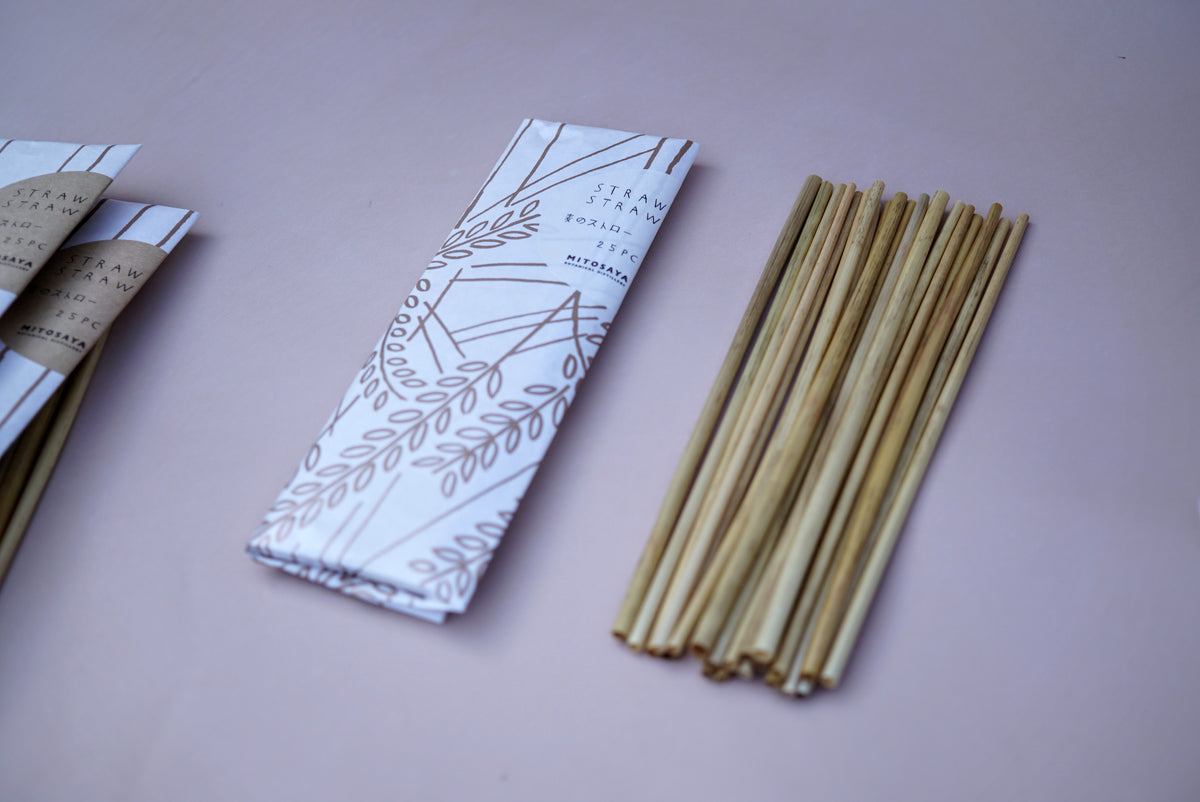
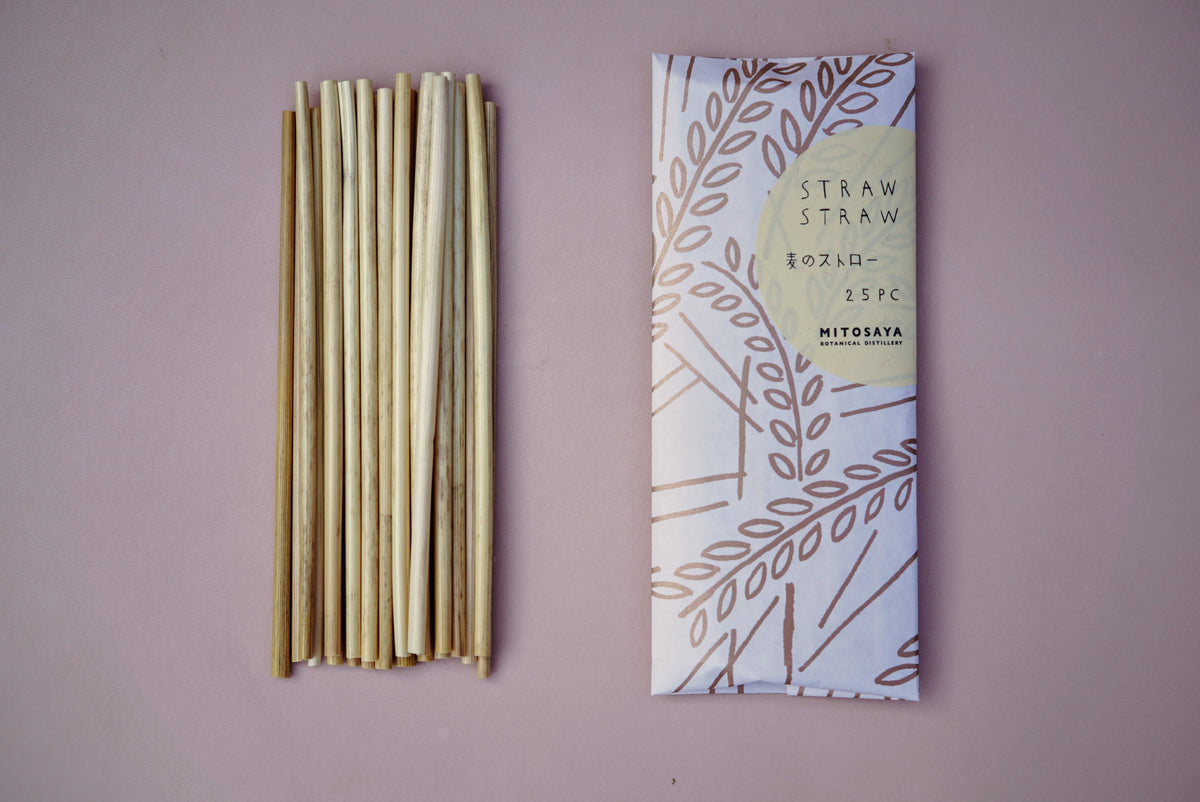
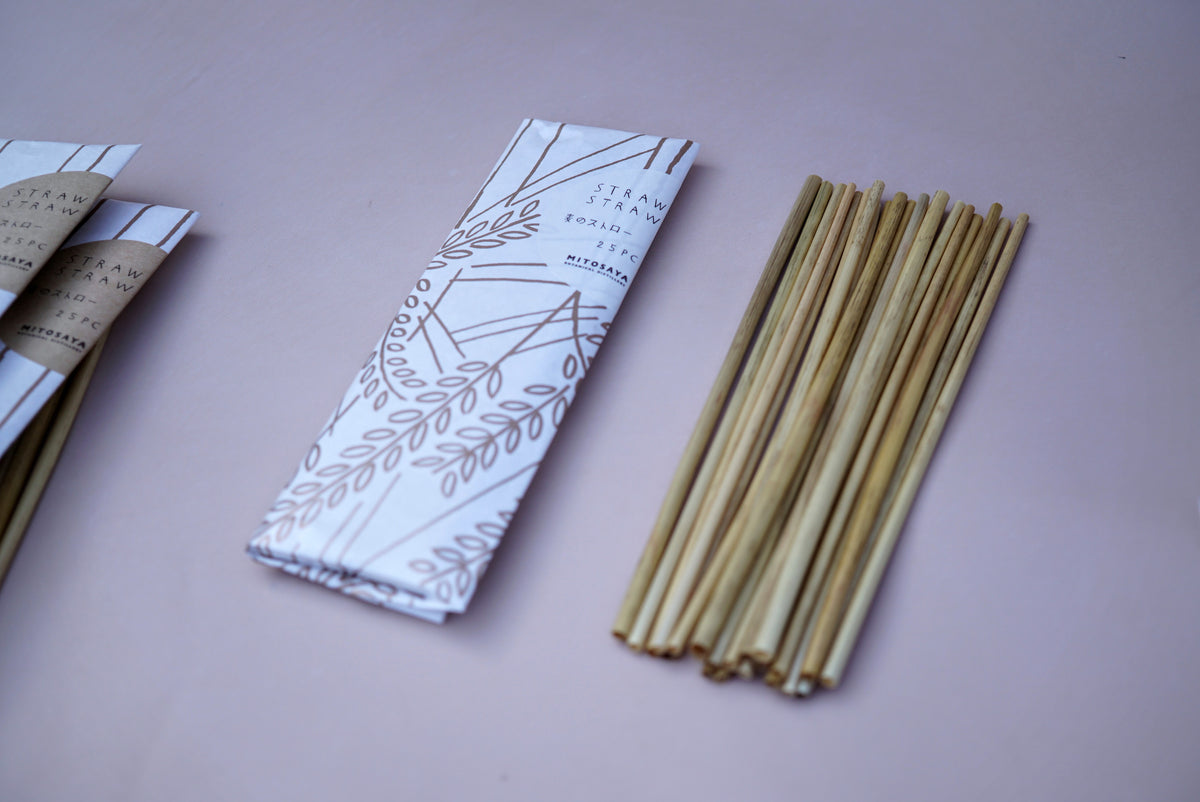


SHOP





These straws are made from naturally grown rye that we ourselves grow.
In the autumn of the year before last, we started growing rye together with local Noguchi-san, a natural life teacher from mitosaya, and Kimijima-san from AMBESSA. Last year, we were able to rent a field in a different location that was several times larger than the previous one. We plow the land and make ridges. We sow the wheat before winter comes, and tread it when it gets a little bigger. We occasionally remove weeds. Through these procedures, the rye that grew this spring has reached a height of 2m.
On a sunny day before the rainy season, we harvested the crops by hand, with help from the Farming Friday team.
The harvested wheat is dried using a machine called a harvester, and then threshed, taking care not to damage the straw as much as possible. For a harvest of just over 100 kg, there is an enormous amount of straw left after threshing.
This year, they commissioned Pier Miyashiki, a welfare facility based in Isumi City, adjacent to Otaki Town, to process the straws. The facility operates a residential facility, workshop, and cafe in a lush location surrounded by rice fields on all sides. With the motto of "a facility needed by the local community," they seek to connect with residents and are carrying out unique initiatives such as the manufacture and sale of sesame oil, jam, and honey using ingredients from Isumi, agricultural exchanges with local elementary schools, and exhibitions of paintings and woodworking works.
The straw that is brought in is first cut off from the ears, then the tips are cut off and any parts that are 3mm or thicker are cut to a set length. Thinner parts under 3mm are difficult to use as straws, and the length needs to be ensured while avoiding the knots that are scattered here and there, so it is essential to visually inspect each strand and cut it by hand.
On the day we visited, there were eight users and three staff members working together. They are divided into two groups based on the type of work each person can do, with some using scissors and others inspecting and bundling. The wooden jigs used to check the thickness and length were handmade by the staff members. They were made to fit the standards of "STRAW STRAW," which makes 15cm and 20cm pieces, and not only does it allow for efficient work, but it also gives off a warm feeling that conveys the care with which the staff work.
Most of these welfare workshops are independently contracted, but Pier Miyashiki is now working to create a system that overturns this common sense. They have reached out to other businesses in two neighboring cities and two towns, and are putting in place a system to make more "STRAW STRAW" by sharing the work among themselves.
The wheat is cut into two equal lengths, boiled, and then slowly dried in a dryer. The surface of the sterilized, tightly packed straw develops a glossy finish.
The packaging is made from a surplus poster created for the Yuko Yamamoto x mitosaya "NOURISH" exhibition held in 2021. The lettering on the label is by Nigel Peake. The repeated name STARAW STRAW conveys that the straw is derived from straw. A single round sticker serves as the title on the front and the quality indication on the back.
These handmade straws are made with the thoughts of everyone involved. The comfort of the natural materials, each one different, expands the enjoyment of your drink infinitely.
We also offer bulk packs in specific quantities, intended for use in restaurants or for retail stores to package in their own discarded paper or packaging paper.
One grain of wheat will one day become whiskey. This wheat straw is the first step towards realizing our dream.
Length: Approx. 15cm / Approx. 20cm
Contents: 25 pieces / 500 pieces
Ingredients: Naturally grown rye (produced in Otaki Town, Chiba Prefecture)
Manufacturer and distributor: mitosaya Co., Ltd.
Cooperation: AMBESSA & CO
As this is a natural material, there may be variations in shape and condition.
Store in a cool, dry place.
Please refrain from using this product if you are allergic to wheat.
These straw straws are made from naturally grown rye that we grew ourselves.
We started growing rye in the fall of the year before last with Mr. Noguchi, a local farmer, and Mr. Kimishima of AMBESSA, a teacher of natural living at mitosaya. Last year, we were able to rent a field several times larger than the previous one in a different location. We plowed the land and made rows. We sow the wheat before winter comes, and step on it when it grows a little. Weeds are occasionally removed. After all this work, this spring the rye has grown to a height of two meters.
On a sunny day before the rainy season, with the help of the Farming Friday team, we harvested the rye with all hands.
After the wheat was harvested, we used a harvester to dry the wheat and then threshed the straw, taking care not to damage the straw as much as possible.
This year, we asked Pia Miyashiki, a welfare facility based in Isumi City adjacent to Otaki Town, to help us process the straws. In a lush green area surrounded by rice paddies on all sides, they run a residential facility, a workshop, and a cafe. With the motto of ""a facility that is needed by the local community,"" the facility is seeking to connect with the local residents, and is engaged in unique activities such as the production and sale of sesame oil, jam, and honey using raw materials produced in Isumi, exchanges with local elementary schools through agriculture, and exhibitions of paintings and woodwork.
When the straw is brought in, the ears are first removed, and the tips are cut to a specific length, which must be at least 3 mm thick. 3 mm or less is too thin to be used as a straw, and the straw must be long enough to avoid knots. The process of seeing each straw and cutting it by hand is essential.
On the day we visited, there were eight users and three staff members working. They are divided into two sections according to the type of work each person can do, and the roles are divided into those who use scissors and those who inspect and bundle the products. The wooden jig used to check the thickness and length of the straws was made by one of the staff members, and was made to meet the standards of the "straw straws," which are made into 15cm and 20cm strands. I can feel the warmth of the work.
It is said that most of these welfare workshops undertake their work independently, but Pia Miyashiki is now working to create a system that overturns this common sense. They have approached the workplaces in two neighboring cities and two neighboring towns, and by sharing and dividing the work among them, they have set up a system to make more ""straw straws.
After the wheat is cut in two lengths, it is boiled and then dried in a dryer becomes over a long period of time. The surface of the disinfected, hardened and tightened straw glossy.
For the packaging, I used the leftover posters I made for the Yuko Yamamoto x mitosaya ""NOURISH"" exhibition held in 2021. The text on the label is by Nigel Peake. The repeated name, STARAW STRAW, tells us that the straw is derived from straw. A single round sticker serves as the title on the front and the quality label on the back.
Each straw is handmade with the thoughts and feelings of the people involved, and the comfort of the natural material that differs from one straw to the next expands the enjoyment of drinks to an infinite extent.
Bulk packs are also available for use in restaurants, and for retailers to package the straws with their own unwanted paper and packing paper.
A grain of wheat will one day become whiskey. This barley straw is the first step of our dream.
Length: approx. 15 cm / approx. 20 cm
Contents: 25 straws / 500 straws
Ingredients: Naturally grown rye (grown in Otaki-machi, Chiba Prefecture)
Manufactured and distributed by: MITOSAYA Co.
Cooperation: AMBESSA & CO
Due to the nature of the material, the shape and condition may vary.
Please keep away from high temperature and humidity.
Please refrain from using this product if you are allergic to wheat.
Couldn't load pickup availability



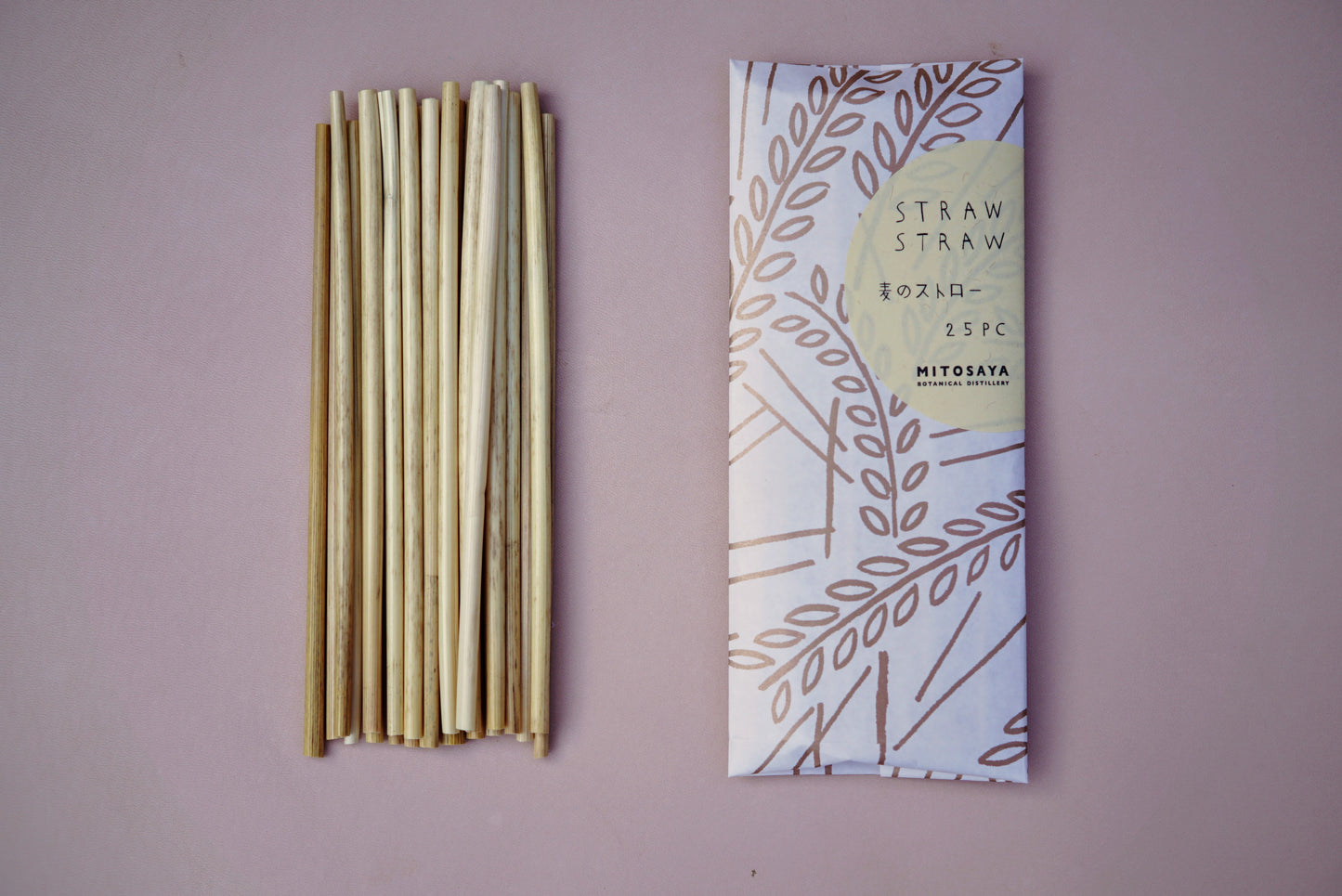

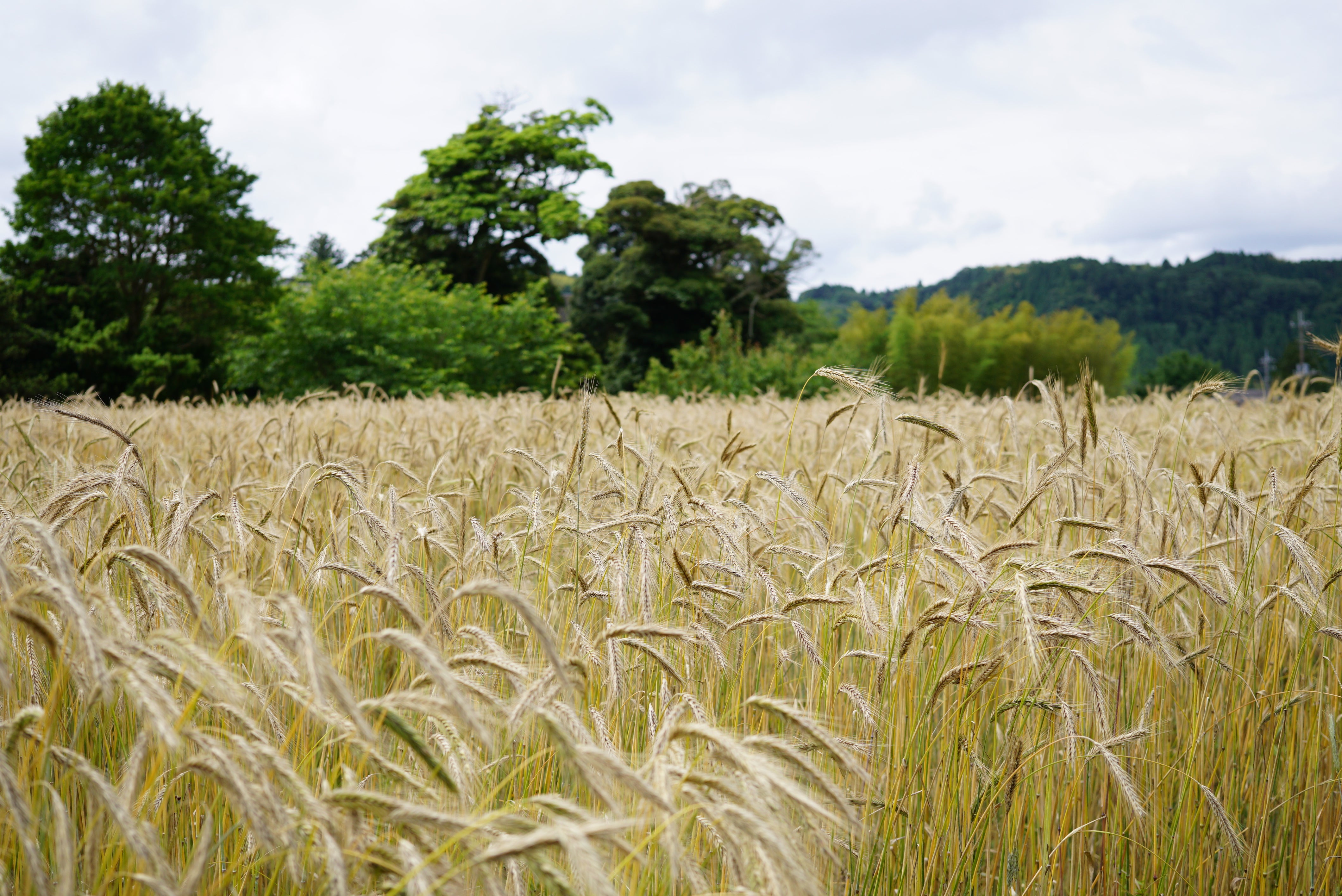
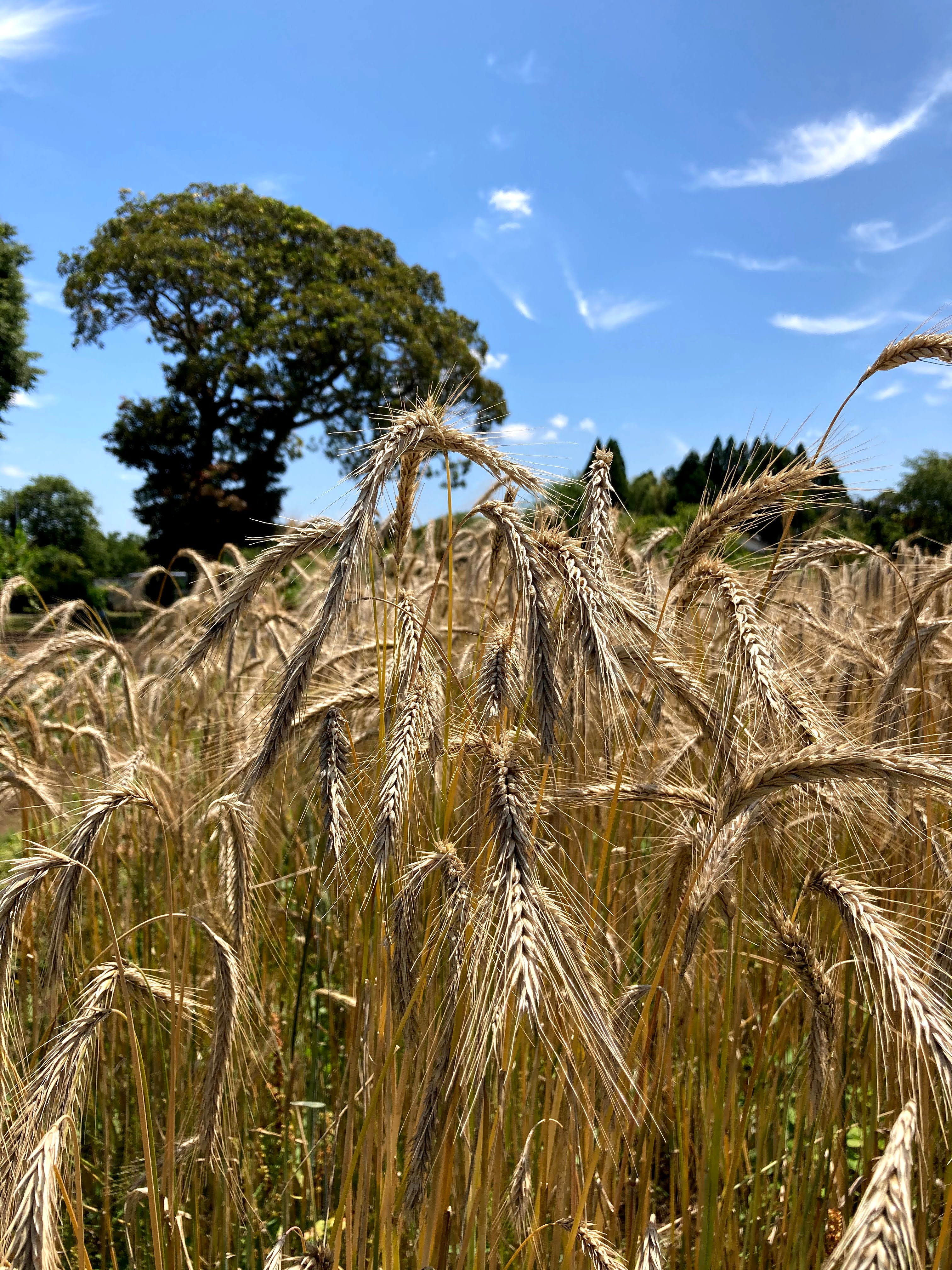
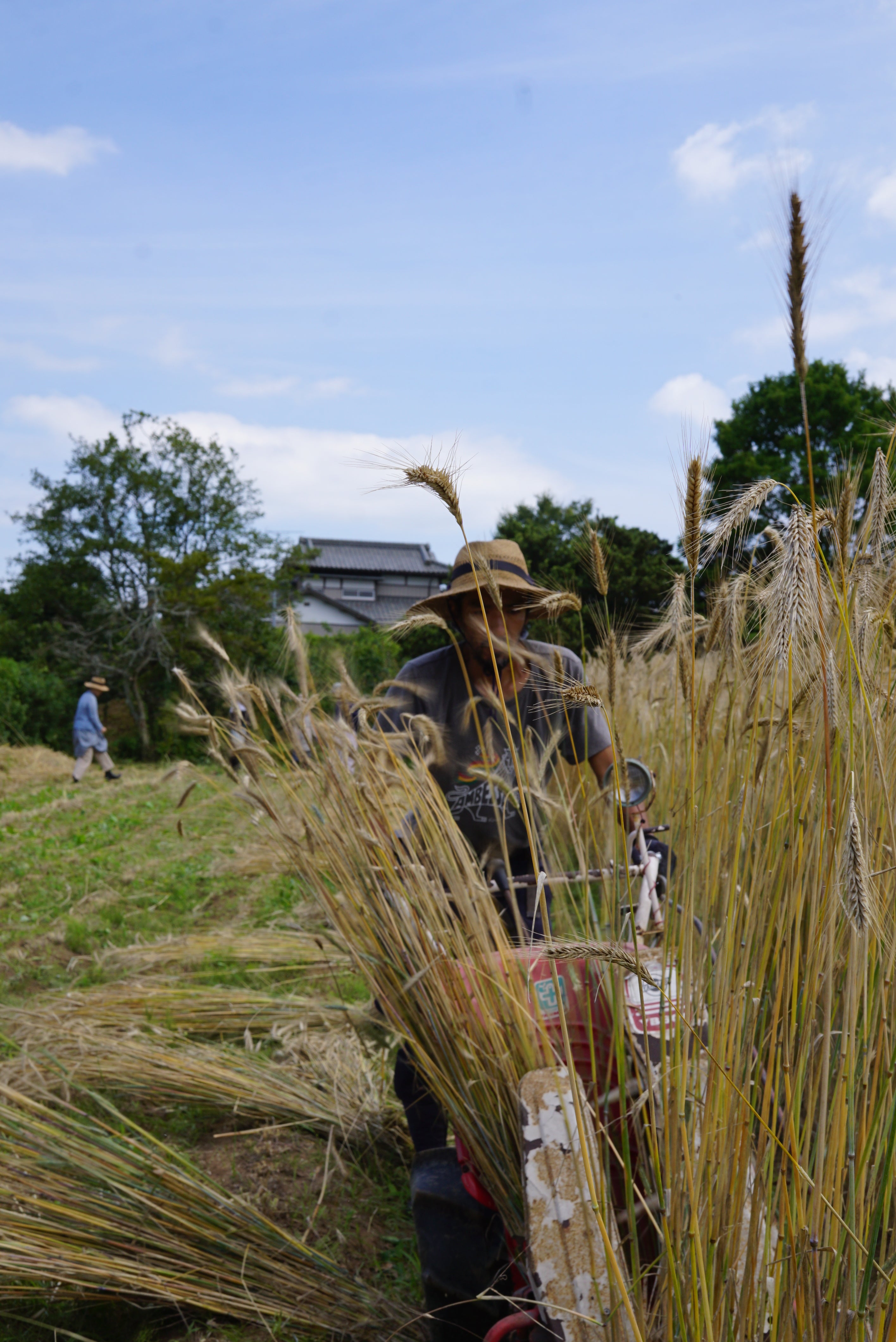
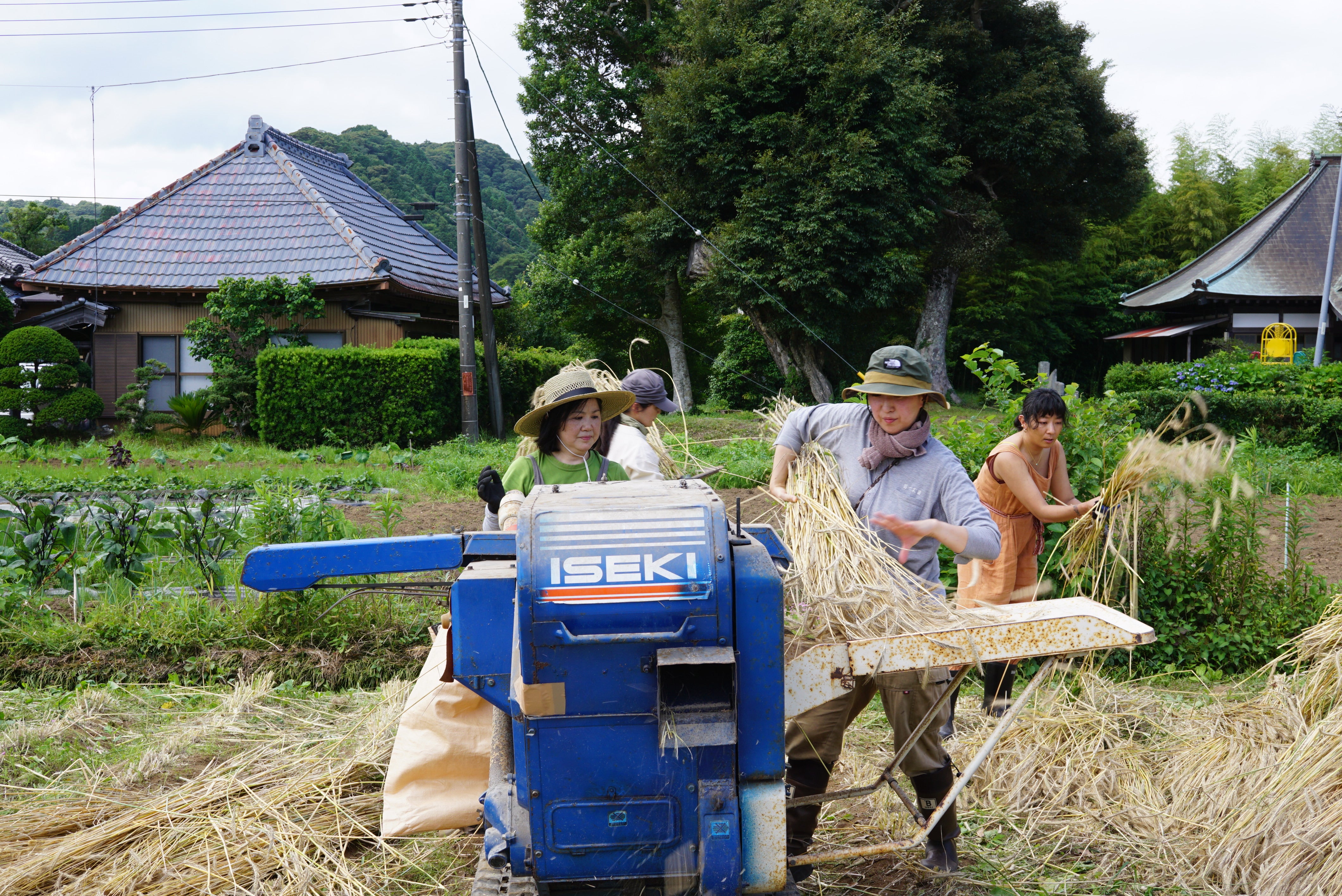
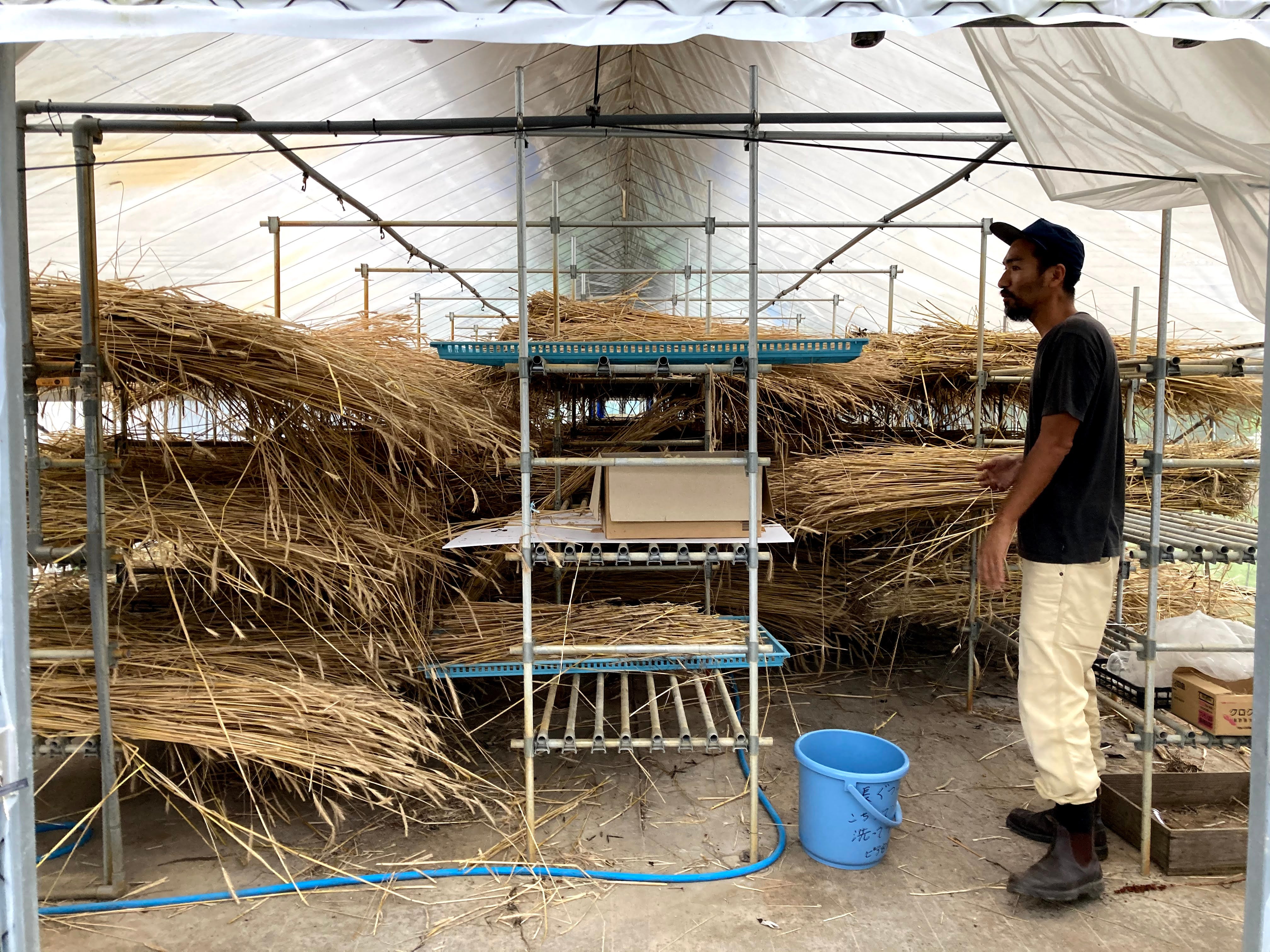
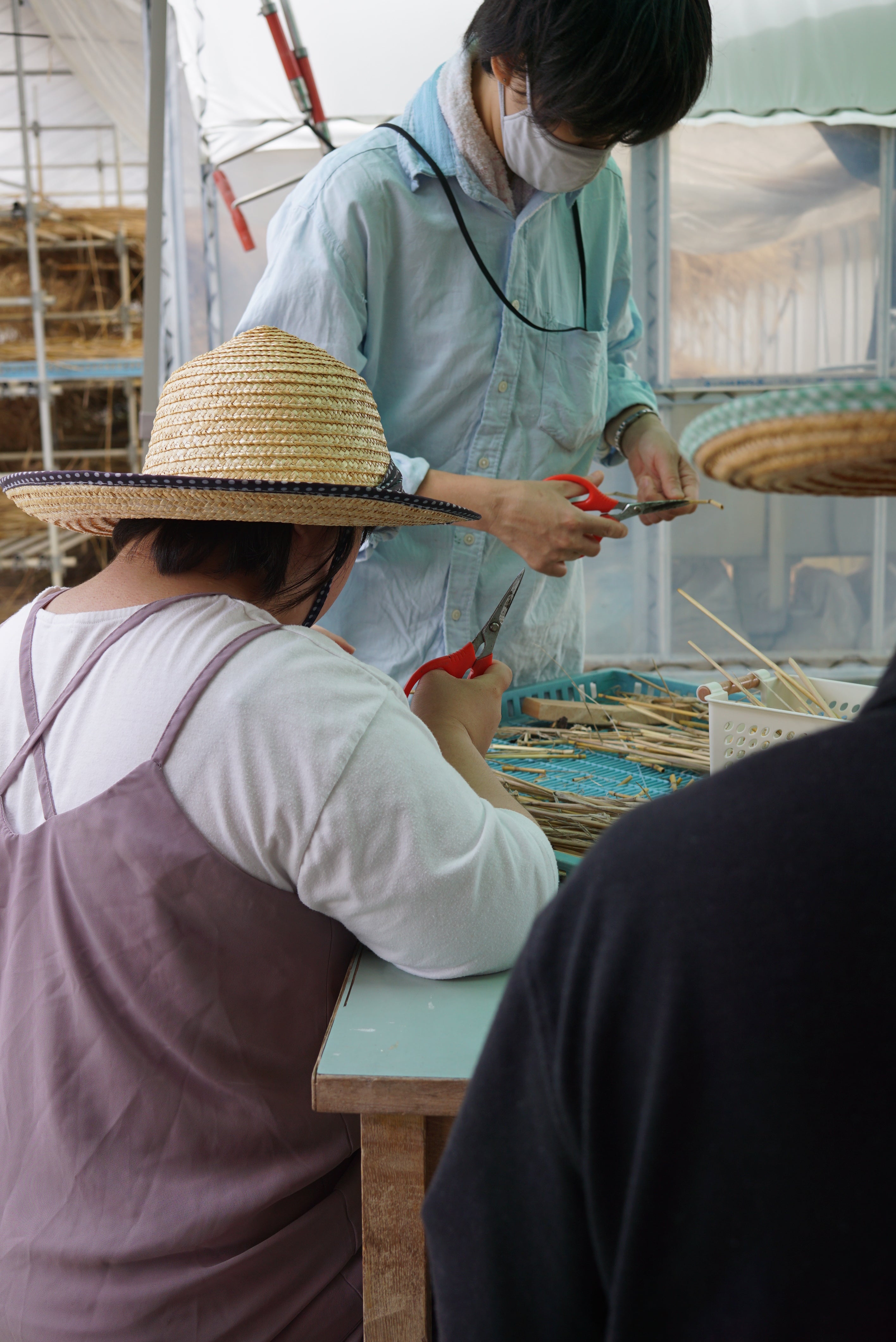
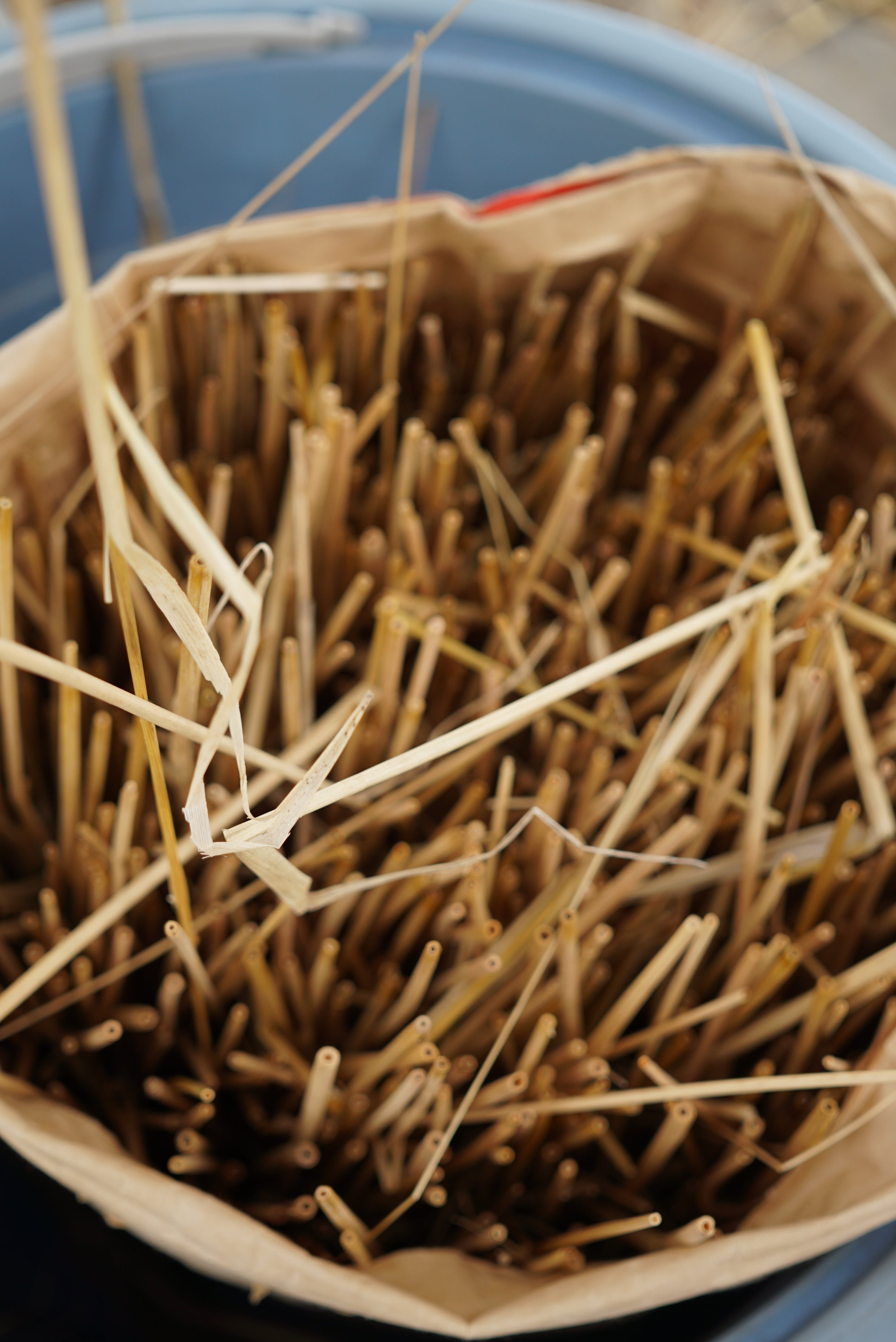
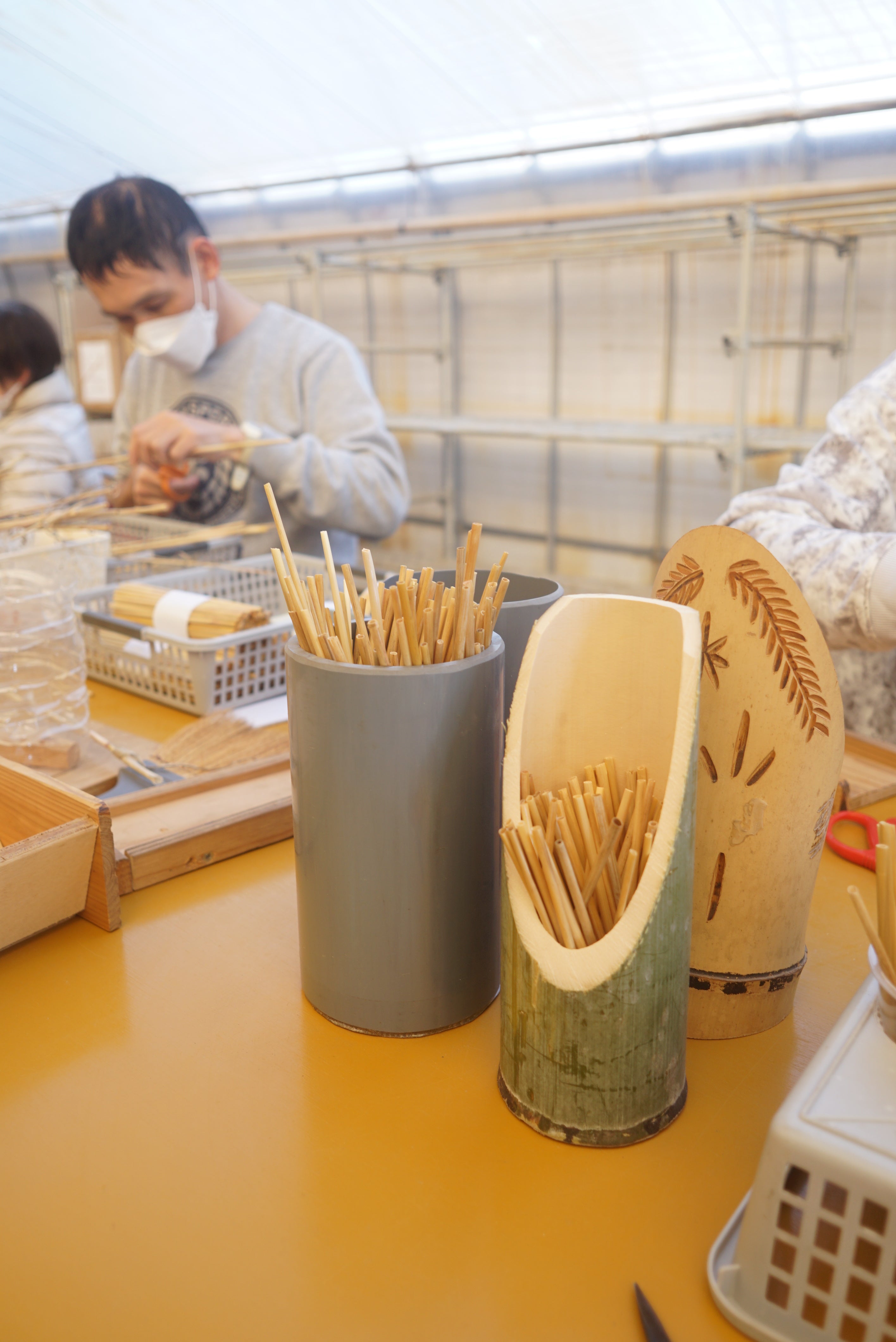
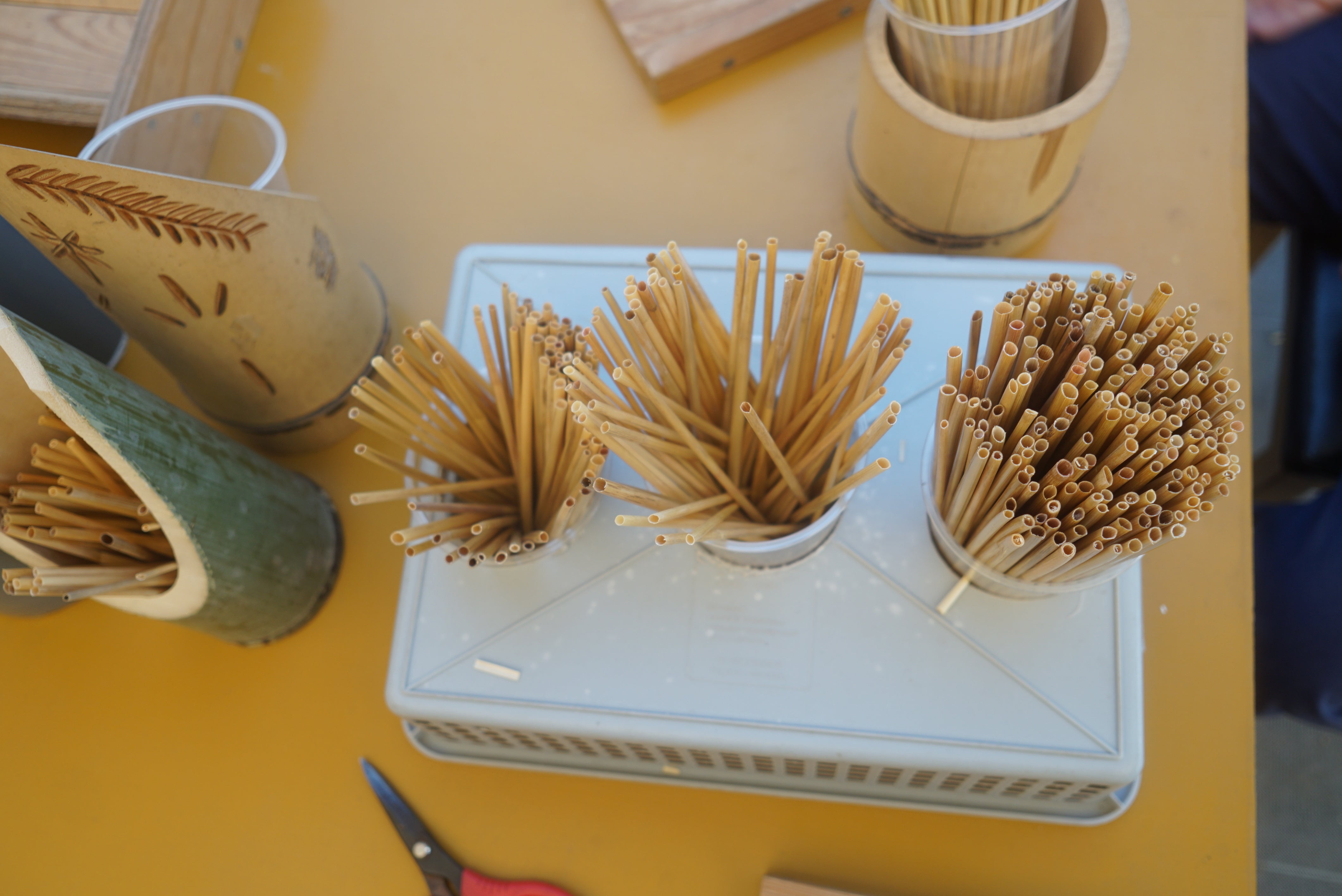
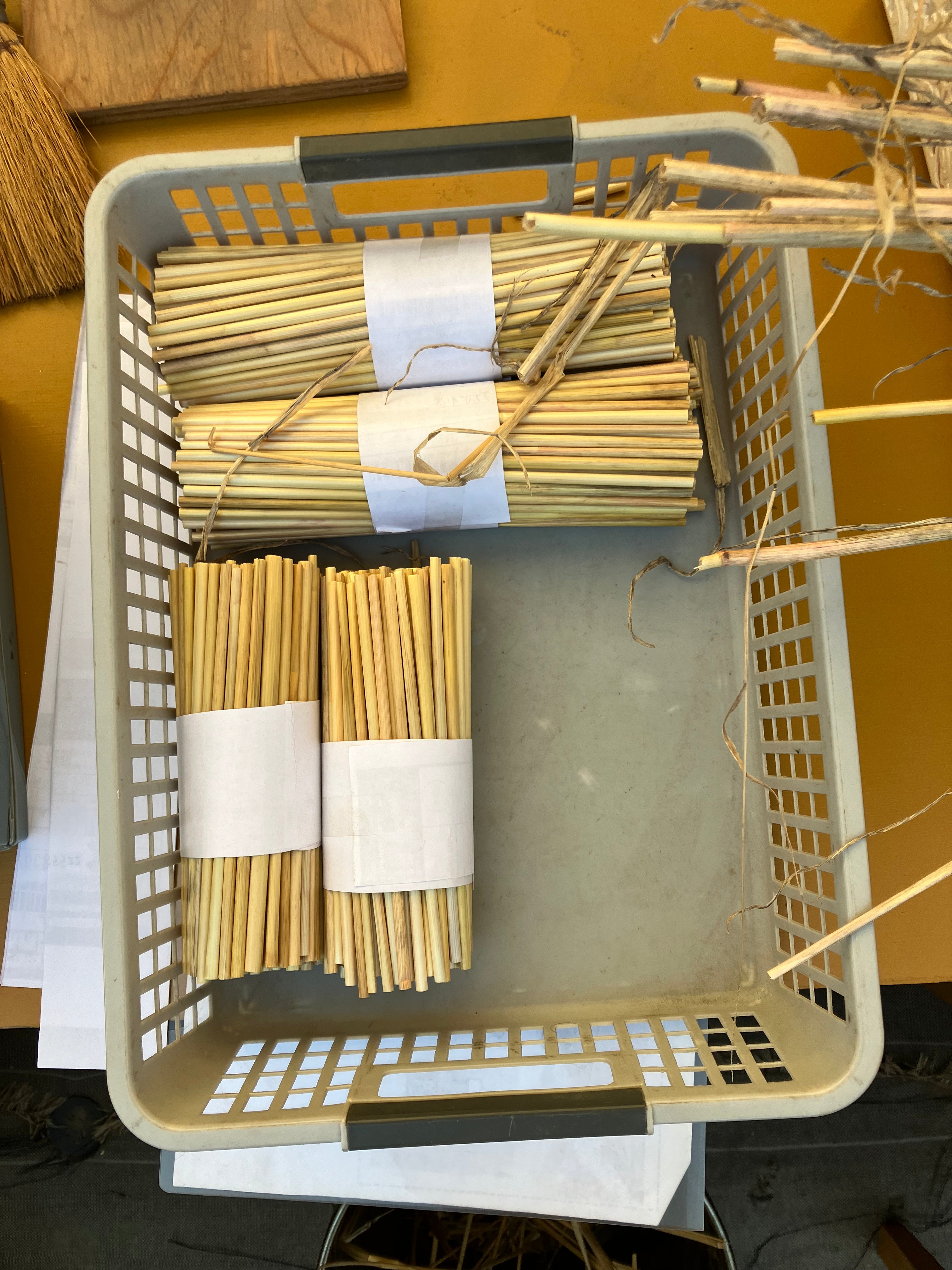
SHOP
NEW ARRIVAL
IN STOCK
LIBATIONS
ABC
JAR
TEA
DRY FOODS
BOOKS
PRODUCT
FRIENDS
TASTE
HOW TO ENJOY
PRODUCERS
STOCKIST
VISIT
mitosaya薬草園蒸留所
〒298-0216
千葉県夷隅郡大多喜町大多喜486
e-mail. cs@mitosaya.com
tel. 0470 64 6041
CAN-PANY / DRINK BAR
〒135-0022
東京都江東区三好2-6-10 1F
e-mail. info@can-pany.com
tel. 03 6751 9106
お酒は20歳になってから
mitosaya botanical distillery
486 Otaki, Otaki-machi, Isumi-gun, Chiba 298-0216 Japan<
e-mail. cs@mitosaya.com
tel. +81(0)470 64 6041
CAN-PANY / DRINK BAR
1F 2-6-10 Miyoshi, Kohto-ku, Tokyo 135-0022 Japan
e-mail. info@can-pany.com
tel. +81(0)3 6751 9106
Alcoholic beverages must be 20 years old.